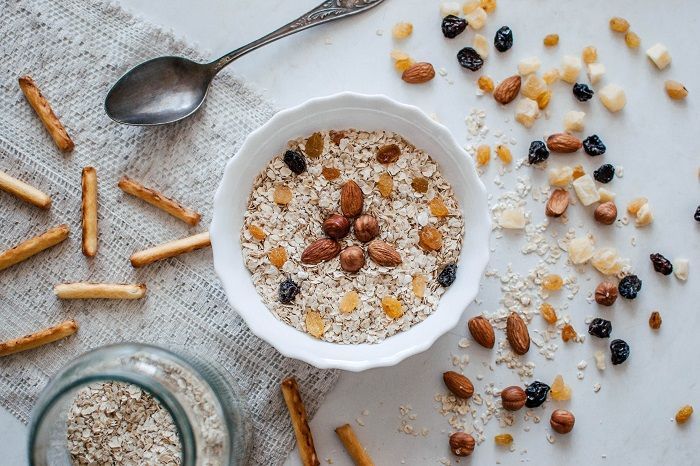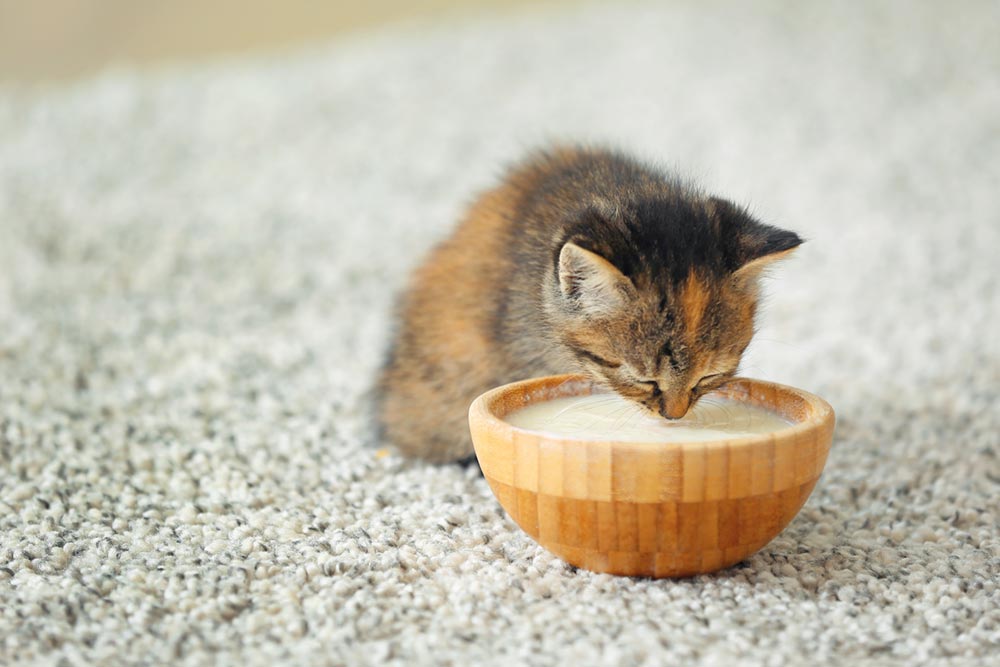As cat owners seek to vary their pet’s diet, novel foods like oatmeal gain attention. Can cats enjoy oatmeal’s wholesome benefits or will its grainy texture disrupt their digestive tracts? This article investigates the science and debate surrounding cats and oatmeal. While oats offer some nutritional merits, cats’ limited carbohydrate tolerance warrants caution. By better comprehending cats’ needs, owners can make informed decisions about unconventional additions like oatmeal to the feline diet.
The Nutritional Needs of Cats
To determine if foods like oatmeal make suitable feline fare, reviewing cats’ dietary adaptations is key. As obligate carnivores, cats thrive on meat-based proteins. Animal flesh provides essential amino acids, vitamins A and B, arginine, taurine and fatty acids. Compared to dogs and humans, cats have limited ability to digest plant carbohydrates and fiber. Some cooked starchy foods may get tolerated in small amounts but cannot replace a meat-focused diet optimized for cats’ physiology.

Oatmeal: What Is It?
Oatmeal refers to oat groats (the whole oat grain) processed into flakes, flour or meal. Whole grain steel-cut oats retain the most nutrition compared to quick oats or instant flavored packets. Oats provide B vitamins, iron, zinc and soluble fiber. For humans, oatmeal offers many benefits. But its composition proves less ideal for felines. The high fiber content could overwhelm cats’ small intestines. Oats also lack key amino acids cats require from meat. As a treat, oats may appeal but cannot nourish a cat nutritionally in quantities needed.
Cats and Oatmeal: The Basics
Cats’ digestive systems differ greatly from humans. Their short gastrointestinal tract rapidly absorbs essential amino acids from meat before elimination. Cats lack adaptations for efficiently digesting the carbohydrates, cellulose and fibers abundant in plants. While tiny portions of oatmeal may be stomached by some cats, large amounts can overwhelm their limited capacity to breakdown and assimilate these complex grains. Monitoring litter box habits after offering oatmeal checks for proper digestion. Understanding feline intestinal limitations helps owners assess when to avoid novel additions like oats.
Pros of Feeding Cats Oatmeal
In moderation, oatmeal may offer some benefits according to anecdotal reports. Possible perks include:
- Fiber for digestion: The soluble fiber in oats may improve cats’ stool quality when portioned correctly.
- Weight management: Oatmeal’s low calorie density helps overweight cats feel full.
- Nutrient variety: Oats provide traces of manganese, zinc and B vitamins to complement meat-based cat foods.
As an occasional treat, a few licks of plain oatmeal may add enjoyment through new flavors and textures without upsetting balance. But incorporating too much risks offsetting optimal cat nutrition.
Cons of Feeding Cats Oatmeal
While oats seem innocuous, they may cause adverse reactions in cats unaccustomed to heavy grains. Potential issues include:
- Digestive issues: Excess insoluble fiber can agitate cats’ guts, causing diarrhea or constipation.
- Sensitivities: Some cats have difficulty digesting oats due to lack of needed enzymes.
- Allergic reactions: Cats may be allergic to oat proteins, triggering itchiness, indigestion, or asthma.
- Weight impacts: Too many calories from sugary instant oatmeal may contribute to obesity.
With negligible benefits for cats versus these potential cons, most veterinarians advise avoiding oats altogether or only feeding minimally.
Serving Oatmeal to Cats
For owners comfortable with sporadic oatmeal feeding, proper preparation and portion control is key. Here are some tips:
- Cook plain steel-cut oats thoroughly until softened, then mash into tiny pieces to reduce choking risk.
- Mix only 1-2 teaspoons oatmeal into a full meal to limit its ratio.
- Avoid sugary instant packets. Choose unflavored oats.
- Add a sprinkle of probiotics or digestive enzymes to meals with oats to aid digestion.
- Keep total portions small and infrequent, about 2-3 times monthly maximum.
Oatmeal should never significantly replace or imbalance cats’ traditional meat-based diet.

Monitoring Your Cat’s Response
When introducing any new food, watch closely for signs of food intolerance or allergic reactions in cats:
Positive signs: Eagerly consuming offered oatmeal, increased energy, better stool quality, soft coat.
Negative signs: Vomiting, diarrhea, lethargy, itchiness, skin irritation. Immediately stop oats and contact your vet if any concerning symptoms develop.
While some owners report digestibility success with oats, others see their cats experience adverse effects. Knowing your individual cat’s sensitivities prevents pushing unsuitable additions like oatmeal beyond their comfort limits.
Expert Opinions
Overall, most veterinary nutritionists caution against incorporating oatmeal and grains into feline diets in anything beyond trace amounts. They note that cats lack the salivary and intestinal enzymes to properly digest grains, leading to potential intestinal woes. Fiber also decreases absorption of some essential cat nutrients like taurine. While oats provide some manganese and vitamin E, cats require higher levels from quality meats. Some vets suggest safer starchy options like quinoa or barley in moderation. But the consensus maintains meat should be the dietary priority, not grains.
Real-Life Experiences
Reactions vary based on individual cats. Some cat owners report no issues after integrating small amounts of oatmeal into meals. However, many others describe cases of stomach upset, with diarrhea frequently resulting from too much oatmeal consumption. Persistent flatulence is also common. The inconsistent outcomes indicate that while a few licks of oatmeal satisfy some cats, most seem unable to digest substantial amounts required to provide meaningful nutritional benefits.
Conclusion
In summary, current evidence indicates oatmeal provides negligible benefits and some risks to cats if given irresponsibly. While tiny portions may be stomached by some cats, improper size or frequency poses digestive issues for most. Meat-based cat foods remain essential to provide complete feline nutrition, regardless of additional treats like oatmeal. With due diligence and veterinary guidance, cat owners can judiciously navigate non-traditional food additions that intrigued yet also confound cats. But as always, a cat’s wellbeing comes first.












